
Medical
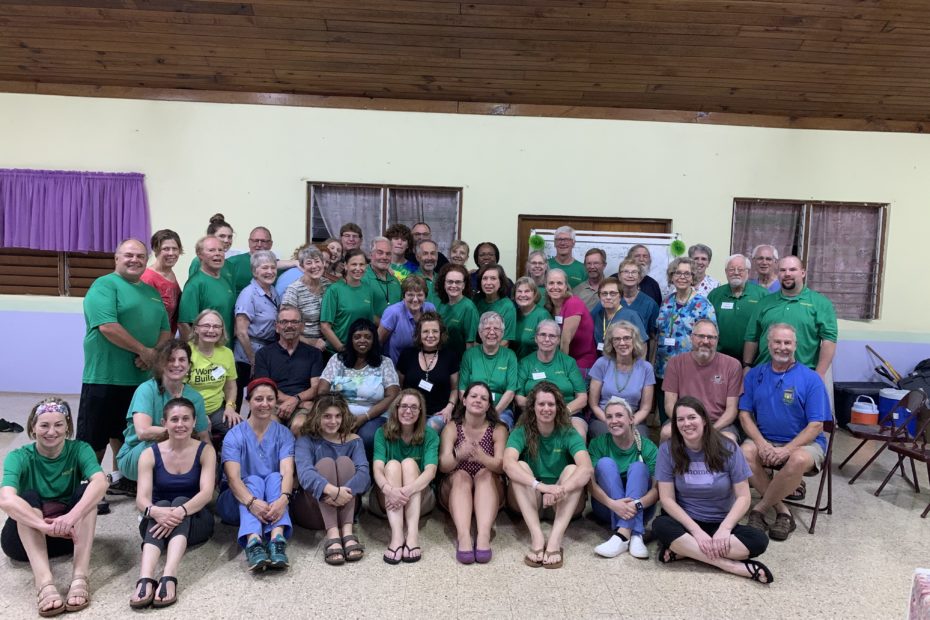
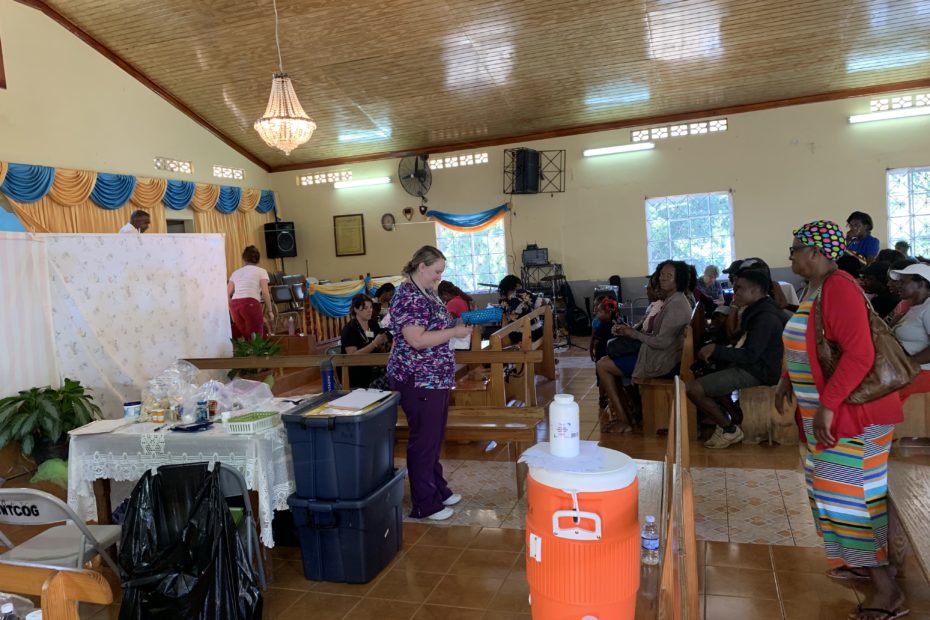
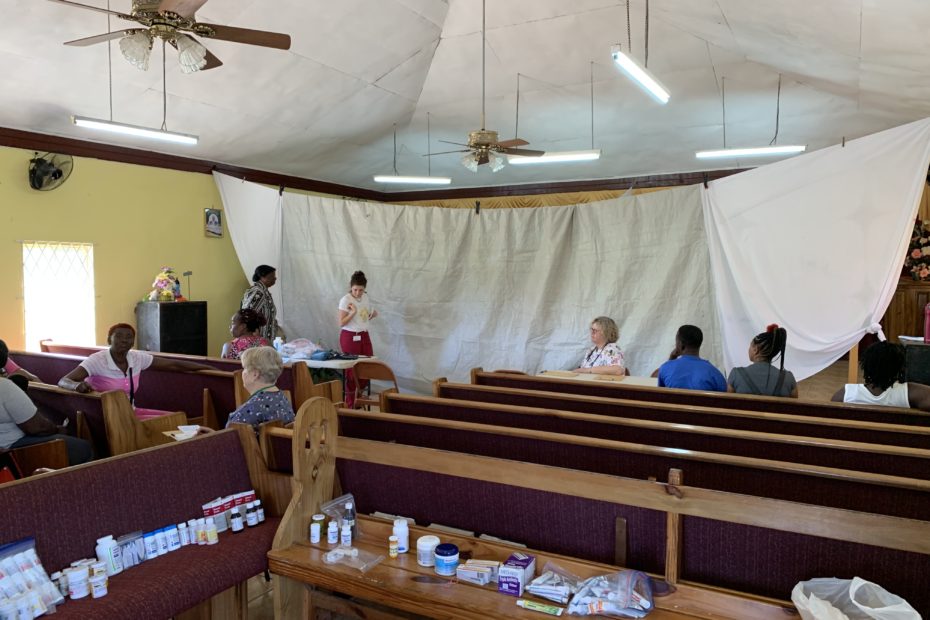
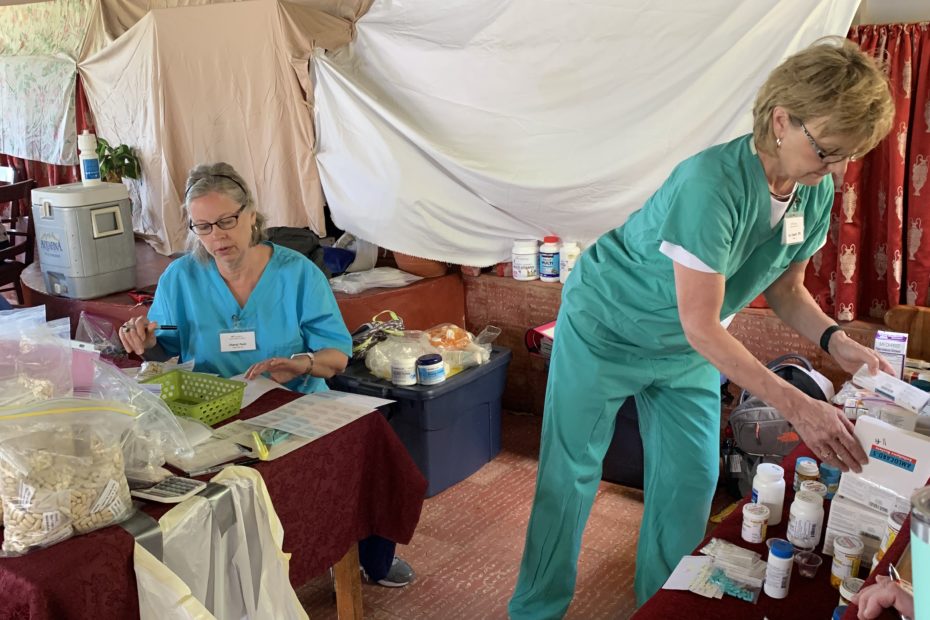
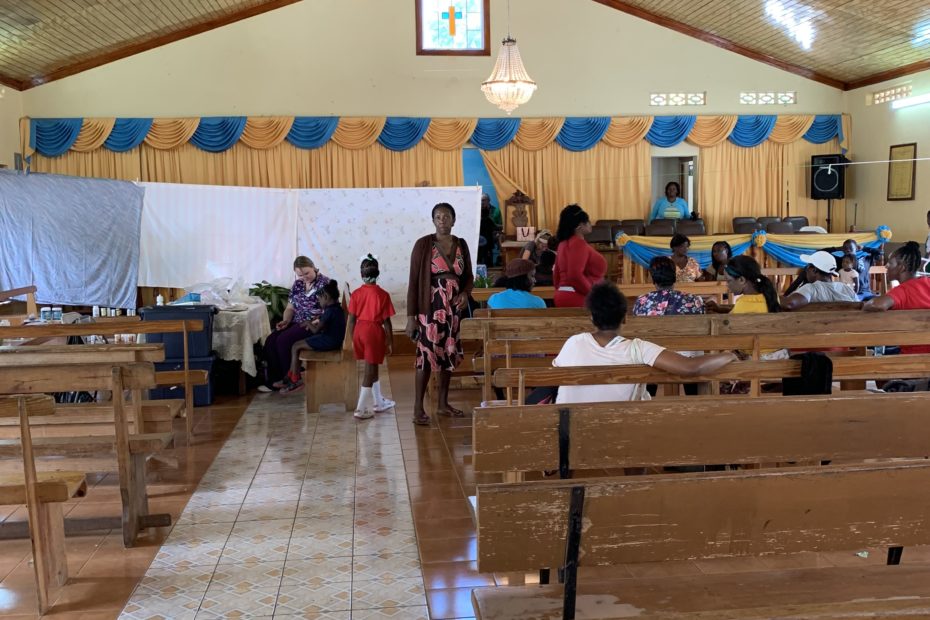
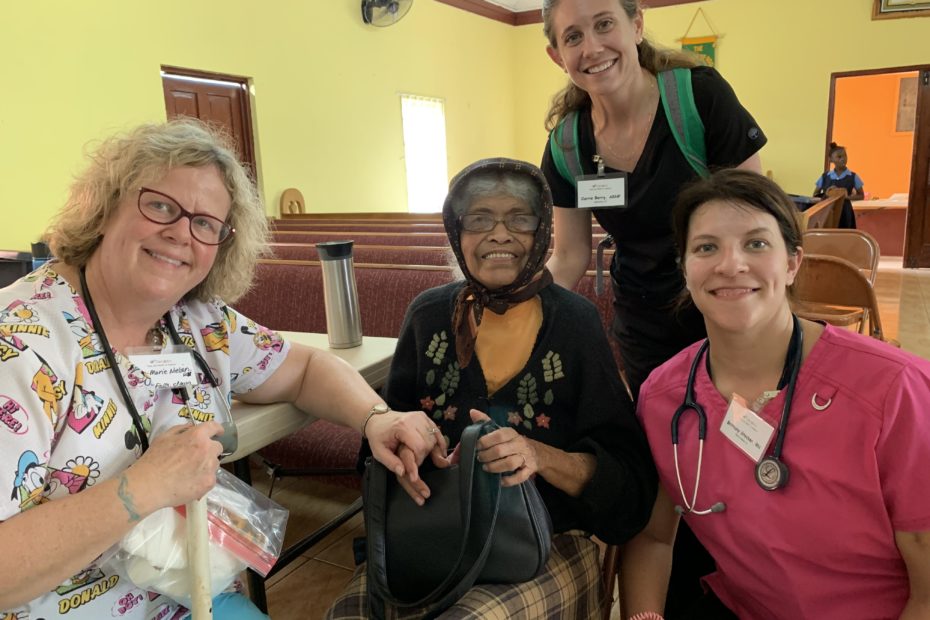
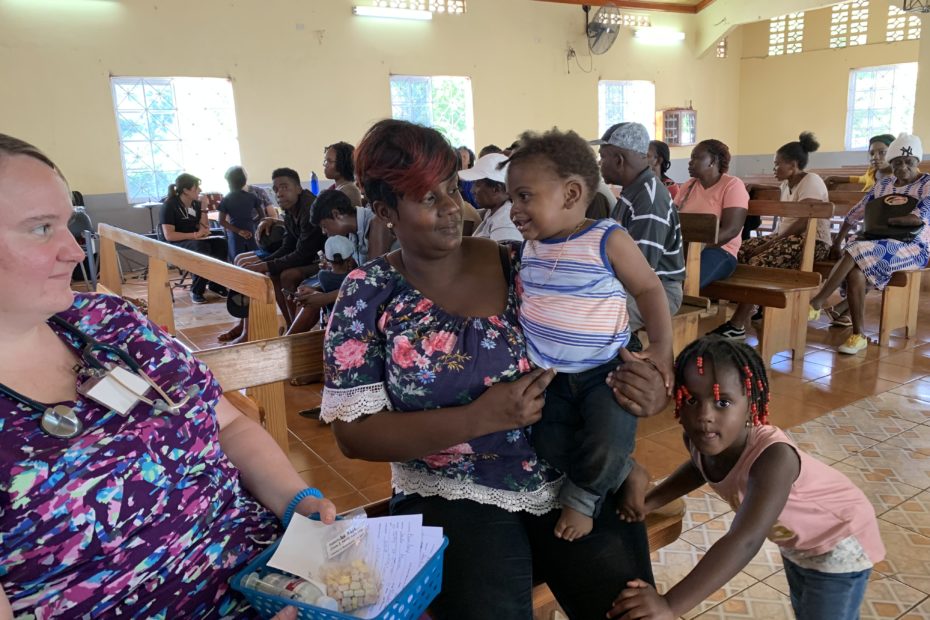

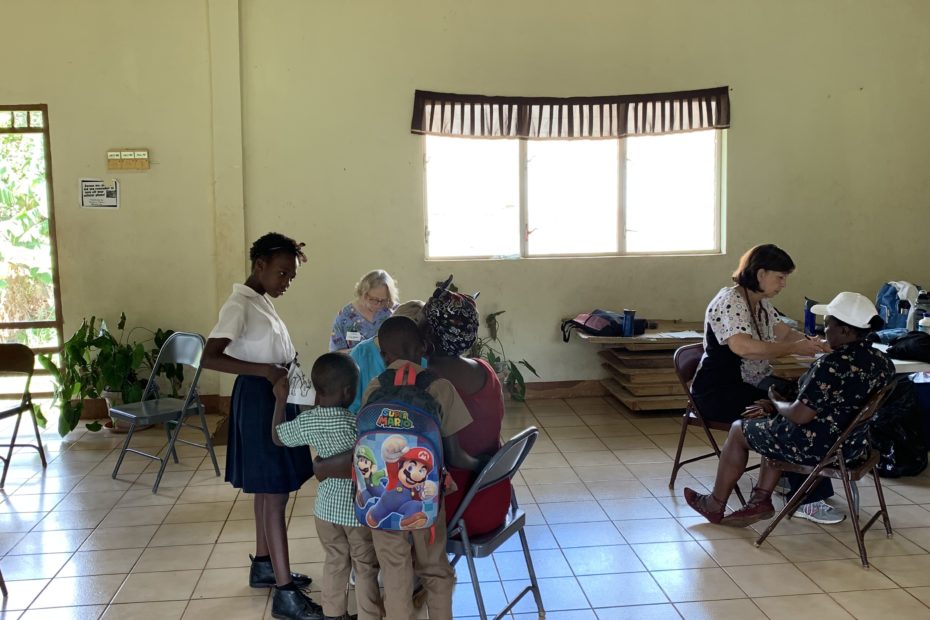
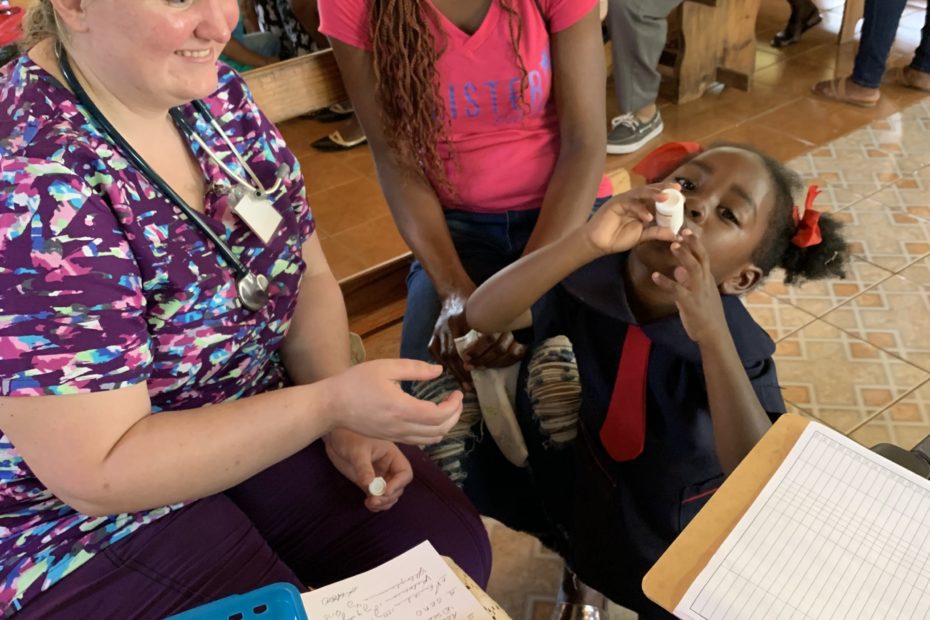
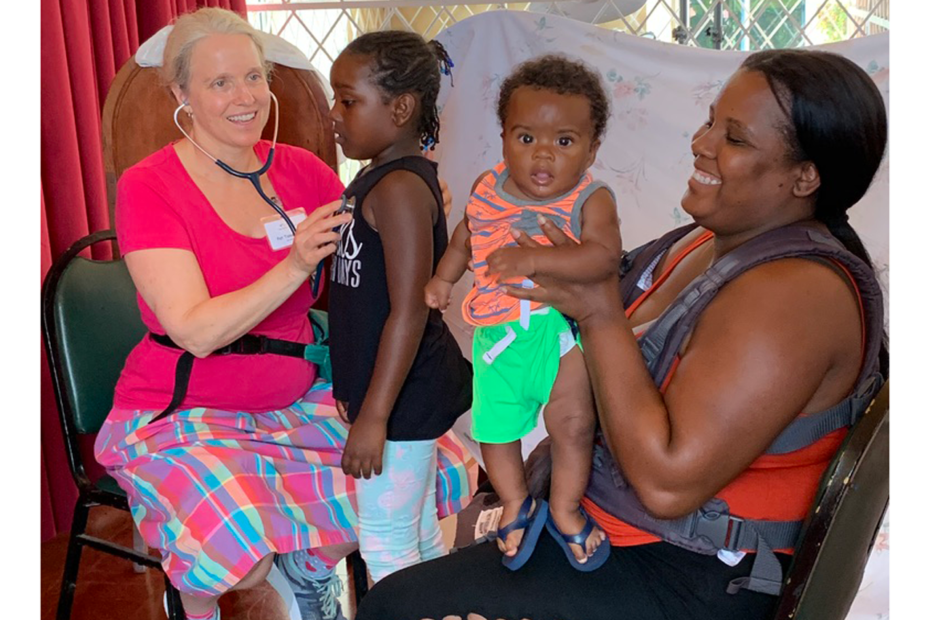
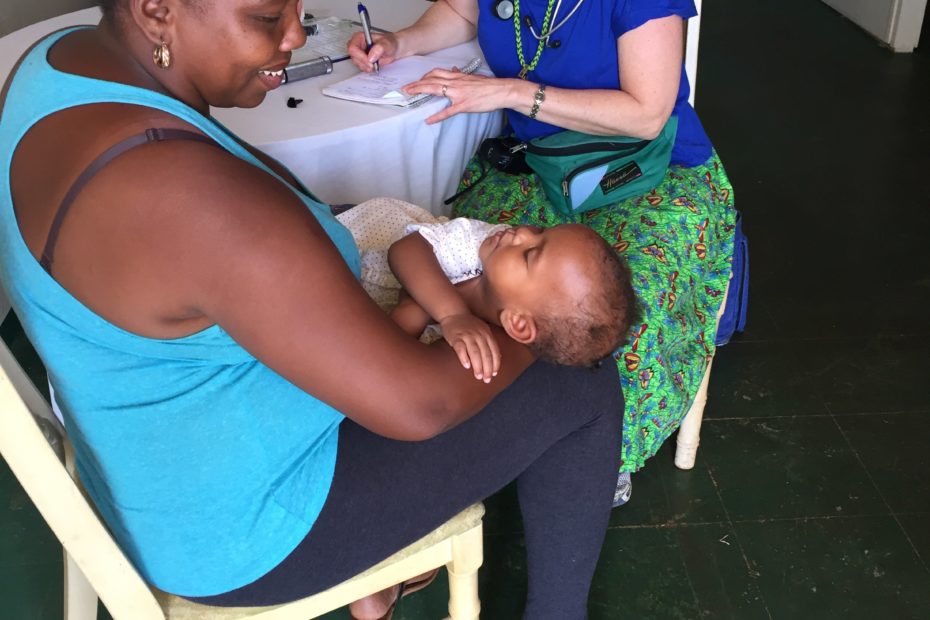
The large team is divided up into smaller teams and sent out to areas where medical care is less accessible. Clinics are held in churches, community centers, and government health clinics. Each team usually has 2 providers, 1 pharmacist, 2–3 nurses, and 2–3 general helpers. When holding a clinic in a church or community center, areas are created with ropes and sheets to provide as much privacy as possible for the patient. Clinics usually start at 9:00 a.m. and finish around 4:00 p.m. We always start with devotions, prayer, and singing before we get to work.
A letter from our Medical Director, Dr. Heidi Zimmerman:
Many healthcare professionals ask me how they would know if they would be a good person to go on a short-term mission trip. I think it involves a curiosity to go and a willingness to be stretched. People who do not even wonder what it would be like or try to see themselves there (in Jamaica or anywhere else) are probably not a good fit for our team.
Truth is, I cannot tell you what it will be like for you, as each team is different, both in the situations we see with our patients and the actual team we work with. But “wonder” may be God tugging and challenging you to something bigger than what you are used to. For me, being willing to be stretched is moving out of my comfort sphere. I may need to use clinical skills I have long forgotten and trust those skills instead of a lab or an X-ray. I may need to treat an age group outside my field or a disease I haven’t seen since residency or even heard about since med school. But amazingly, God makes a way. Sometimes I am paired with a nurse whose field is that very thing I lack confidence in. Usually, we are paired with other doctors that complement our skill set so they are a resource. I have found my listening skills get much better in Jamaica if I allow the time for the patient to tell their story, which does take a little work due to the Jamaican dialect of Patois. But we all know that probably 80% of a diagnosis and treatment plan can come from a good history and the physical exam either supports or redirects it.
At H2Jamaica, we are of a strong conviction that God puts the person you need to see that day right under your nose, and therefore it is our goal that you see each person well. While the places we go usually have little access to readily-available healthcare and often it feels there is no way we can see them all, we have nurses who triage and the Jamaicans themselves are very gracious in giving their spot in line to someone with a greater need. Each clinic set up is a little different and even if we have had a team there before, it’s always a bit like opening a present to see what you will deal with that day. I have seen patients in a reasonably well-appointed exam room in a church or government clinic and I have seen patients in a tiny bathroom with me sitting on the seat of a toilet, my clipboard on the sink, and the patient on a chair tightly squeezed in-between. We laugh a lot together, both with patients and teammates.
Although my background is family medicine, I usually see adult patients unless there is no pediatric provider. The pediatricians are probably most stretched when they are called upon to see adults when they have run out of children to see, but they do it willingly. The bulk of folks I care for have hypertension, diabetes, arthritis, post-stroke, wound care, some CHF, vision problems (which we really can’t help other than to make referral,) asthma, skin conditions, gynecologic issues, and other more acute situations in which we facilitate a more urgent referral to the hospital. Perhaps most gratifying, for patient, doctor, and nurse alike, is the successful removal of impacted ear wax! J
Jamaicans are not without health resources. Most of their doctors are extremely well trained. Usually, the problem is access. Finding transportation to large health centers for specialty care can be personally costly and, once there, the lines can be long. I tell this part of the story to reinforce that our Jamaican patients are very grateful for whatever care and information we can give them as long as it is good care and accurate information. The culture understands waiting and disappointment in a way that North Americans do not. Which brings me back to my advice to listen to their story. The value of just listening reminds them of their very great value to God. He knows their hurts and cares better than we do.
So, to come to Jamaica, you need to bring your open and willing heart, your listening ears, an appreciation that the North American way is not the only way, and your stethoscope, ophthalmoscope, otoscope, and whatever else you might have stuck in a little black bag, if any of you are old enough to remember those. Feel free to contact us through the web site and we can try and answer any other questions you might have.
Heidi Zimmerman, MD